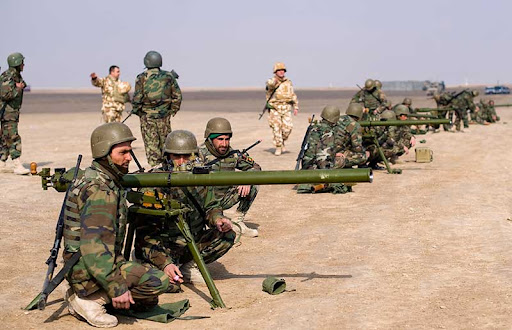On December 24th night (last Tuesday), Pakistan launched airstrikes on the Baramal District in Paktika province, eastern Afghanistan which is in the border region between Afghanistan and Pakistan. The Taliban spokesperson, Zabihullah Mujahid, has confirmed the attack. Pakistan targeted The Tehreek-E-Taliban Pakistan (TTP) terrorist group hideout. The Pakistani media report suggests that the media office and TTP hideout have been demolished. At least 20 militants were killed in that area, according to a senior Pakistani security officer. Still, Kabul claims more than 46 civilians were killed, most of them women and children, and several were injured but no Taliban people were harmed. Afghan defence ministry confirmed that most of the dead were Waziristani refugees who were from the Mountainous region of Khyber Pakhtunkhwa province of Pakistan. The fact that Pakistan’s envoy met with the Taliban’s foreign minister in Kabul just hours before the attack is noteworthy. Thus, Pakistan might be taking a different approach, if not a diplomatic one.
In response to the incident, Afghanistan’s Ministry of Defence expressed its displeasure on social media, stating that they would not tolerate this cowardice and would protect their territory as the Taliban promised. Retaliation.
Historical Background
Pakistan has frequently charged Afghanistan with harboring Tehreek-E-Taliban terrorists on its territory. The attack might be retaliation for the TTP’s attack in South Waziristan last week, in which 16 Pakistani soldiers were killed. The Pakistan security official claimed the air strike was triggered by the recent attack of TTP, but it will not be the only one. According to a United Nations report, in July there were at least 6500 TTP terrorists based in Afghanistan and the Taliban do not recognize TTP as a terrorist group. The TTP is quickly becoming an umbrella group for other terrorist organizations in the region with the obvious goal of destabilizing Afghanistan’s neighbor, according to a complaint made by Pakistan’s envoy to the UN last week. They asserted that TTP is evolving into a branch of Al-Qaeda. Kabul refuses to turn over TTP militants to Pakistan despite Islamabad’s numerous requests.
The Pakistan Institute for Conflict and Security Studies reports that 1082 people were killed in 2024 as a result of the 1510 terror acts that Pakistan carried out in the previous two years.
Apart from all these, there are some other reasons for these frequent attacks. Pakistan has often been accused of carrying out cross-border shelling into Afghanistan, supposedly to target militant groups that are active in the area around the Durand Line. These acts are frequently described by Afghan officials as an abuse of military power and a breach of sovereignty. Another reason may be, that Afghanistan, which has long rejected Pakistan’s claims, does not formally recognize the Durand Line, the border drawn during British colonial administration. Claims of provocation and encroachment have been made in response to Pakistani military actions along this border, including the installation of walls or border posts.
Consequences of military action of Pakistan against Afghanistan
It resulted in a lot of civilian casualties and affected the Islamabad-Kabul relations. Pakistan began its campaign of expelling Afghan refugees from its territory by claiming that security was an issue. Such acts aggravate the distrust between Islamabad and Kabul, impeding collaboration on matters such as regional connectivity, trade, and counterterrorism.
The critics have to say the double game and flawed policy of Pakistan are exposed by this as Pakistan always distinguished terrorists as good terrorists and bad terrorists and it gave shelter to Terrorist groups like Al-Qaeda and most wanted terrorists like Osama-bin-Laden. But in 2011, Hillary Clinton famously cautioned: “You can’t keep snakes in your backyard and expect them to only bite your neighbors.” Whoever owns those snakes in the backyard will eventually get them to turn on them.
Although the TTP and other armed groups operating along the Afghanistan-Pakistan border are distinct entities, their alliance was well known before the Taliban took charge in Afghanistan in 2021. At that time the Taliban were viewed as a vital ally of Pakistan, and Pakistan has been crucial in supporting them. This assistance, which was based on a sophisticated geopolitical plan, was intended to protect Pakistan’s interests and destabilize neighboring Afghanistan. The Taliban that Pakistan assisted in bringing to power, however, is now turning against its founder in a stunning reversal of events. The Taliban have responded by vowing revenge, and it has been estimated that 15,000 fighters are marching from major Afghan cities towards the Pakistani border.
Will it lead to a war or not
The world reacted to the incident and The Indian government has not yet released an official remark on Pakistan’s recent airstrikes in Afghanistan.
Karine Jean-Pierre, the White House press secretary, said, “We urge the Taliban to make sure that terrorist attacks do not originate in Afghanistan. In their counterterrorism measures, we implore Pakistan to use caution and make sure no civilians are hurt.” The United States has urged communication between the two countries to settle their disputes, stressing the significance of keeping Afghanistan from turning into a terrorist haven.
The already fragile ties between Pakistan and Afghanistan have been made worse by these airstrikes. Afghan officials contest these assertions, highlighting the civilian casualties, while Pakistan claims the operations targeted militant organizations that carried out assaults on its territory. Concerns have been voiced regarding possible reprisals by organizations like the Tehreek-e-Taliban Pakistan (TTP), which could worsen instability in the region.
The worldwide condemnation of Pakistan’s bombings in Afghanistan has included demands for moderation and communication to address underlying security issues. The event emphasizes how delicate regional ties are and how cooperative counterterrorism strategies that respect country sovereignty and put civilian safety first are essential.

